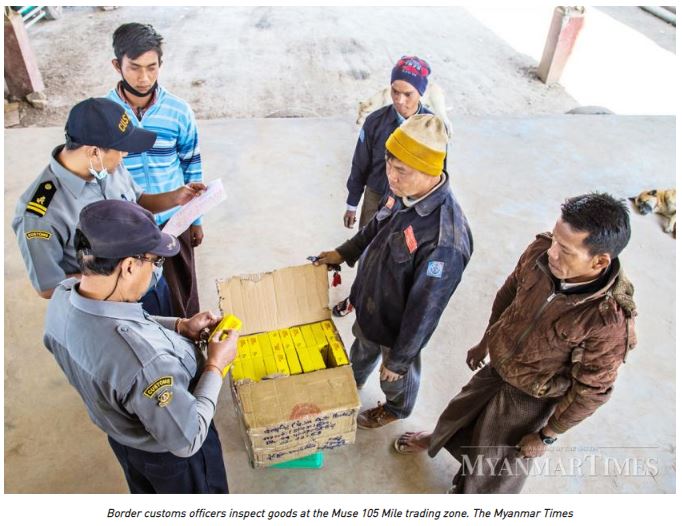Myanmar: Traders on losing end, will need time to get used to barter trade deal
Myanmar businesses who participate in barter trading with China will have to find buyers for the goods they get in exchange and this system of trade may take some time to get used to.
Myanmar Rice Federation central executive committee member U Soe Tun said it would be more convenient for Myanmar businesses to receive payments for the goods they export to China in cash.
Now, the merchants will have to look for buyers for the goods they receive in exchange, which may not always be in demand, and risk delays and disruptions to cash flows, he said.
U Soe Tun was commenting in response to questions over an agreement for overland barter trade signed on July 25 between Mandalay Rice Development Company (MRDC) and Kunming Green Color Trade Co from China’s Yunnan province.
The agreement would see MRDC exporting up to 100,000 tonnes of rice to China while receiving chemical fertilisers, construction material, electric appliances and agricultural machinery manufactured from Yunnan province in return.
It is unclear if the terms of the agreement included details of how the Chinese goods would be valued.
Myanmar Fruit, Flower and Vegetables Producer and Exporter Association general secretary U Kyaw Thu also said the traders returning with Chinese goods would now have extra work looking for buyers, implying that local traders are at the losing end of the deal.

The Myanmar Times
The undertaking was the first such agreement between private companies following the signing of a memorandum of understanding between the Myanmar and Chinese governments on the overland barter trade in April.
Ministry of Commerce deputy permanent secretary U Khin Maung Lwin explained that the barter trade agreement is meant to solve problems arising from the informal trading arrangements at the border.
To avoid paying high tariffs imposed on Myanmar goods by the Chinese authorities, traders often resorted to smuggling goods across the border. This, in turn, led to frequent border arrests, trading suspensions and freezing of Myanmar bank accounts in China, which disrupted trade and resulted in losses.
Last year for example, an import ban on rice, sugar and maize by China caused trading of those crops to grind to a halt at the Muse border gate for at least a month.
MRDC managing director U Sai Kyaw agreed that rice traders that used to sell their produce for cash could face challenges offloading the goods they received in exchange for their crops, but vowed that his company would help the farmers and rice millers solve issues arising from the arrangement.
“The ban made it difficult to sell rice and maize and policies often change, now with the barter system, things are more predictable,” he said, adding that 1,000 tonnes of rice has been exported out of an initial 10,000 tonnes.
U Khin Maung Lwin said the Myanmar side wants another 79 rice mills to be permitted to sell their rice to China from the current 11. – Translated
Source: https://www.mmtimes.com/news/traders-losing-end-will-need-time-get-used-barter-trade-deal.html


 English
English




